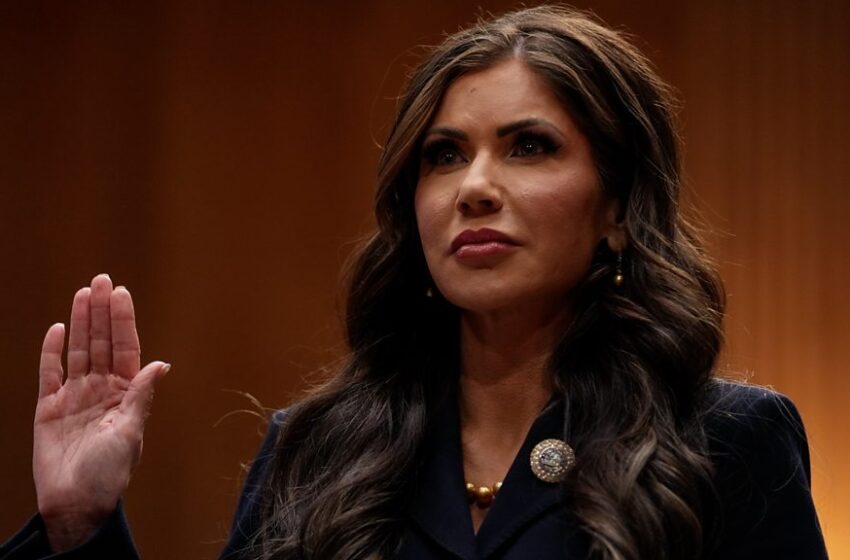South Park’s “dog killing” gag: What’s behind the Kristi Noem controversy?

South Park takes aim at Kristi Noem with a dark running joke—here’s the real story behind it.
If you caught the latest South Park episode titled “Get a Nut,” the second entry in the show’s 27th season that aired Wednesday, you probably noticed it didn’t hold back when it came to skewering political figures. From Donald Trump to ICE, the satire was unrelenting. But one character who got a particularly savage treatment was Secretary of Homeland Security Kristi Noem.
Throughout the episode, a bizarre and recurring gag centers around Noem casually and repeatedly shooting dogs—including Krypto, Superman’s canine companion. The recurring punchline left many viewers puzzled: why the intense and specific dog-killing joke? As it turns out, this satirical jab is rooted in a very real and highly controversial incident involving Kristi Noem herself.
The Real-Life Dog Shooting Story
In 2024, Kristi Noem released a political memoir titled No Going Back: The Truth on What’s Wrong with Politics and How We Move America Forward. Within its pages, she recounted a disturbing story about shooting her own dog, Cricket. The story shocked the public and drew widespread criticism, not only for the act itself but for the graphic way in which she described it.
According to the excerpt, Noem had taken Cricket—then a young pup—on a pheasant hunting trip alongside more experienced dogs. She hoped the younger dog would learn from the older ones. But things went horribly wrong. Noem claimed that Cricket was uncontrollable, ignoring commands and electronic collar corrections. After the hunt, she stopped by a local family’s home, where Cricket escaped her truck and began attacking the family’s chickens.
In vivid detail, Noem wrote that the dog “grabbed one chicken at a time, crunching it to death with one bite, then dropping it to attack another.” She compared Cricket’s behavior to that of “a trained assassin.” When she finally managed to restrain the dog, it allegedly turned to bite her. With the chicken owner in tears, Noem apologized, paid for the damages, and then came to a grim conclusion: “I realized I had to put her down.”
Her Public Response to the Backlash
After the story from her book circulated widely, the backlash came swiftly. Many questioned not only the necessity of her actions but also her judgment in publicizing such a violent story. Animal rights advocates, political opponents, and regular citizens voiced outrage, suggesting the decision reflected a lack of empathy or poor judgment.
In response, Noem defended her actions. On X (formerly Twitter), she wrote: “The fact is, South Dakota law states that dogs who attack and kill livestock can be put down. Given that Cricket had shown aggressive behavior toward people by biting them, I decided what I did.” She continued: “Whether running the ranch or in politics, I have never passed on my responsibilities to anyone else to handle. Even if it’s hard and painful. I followed the law and was being a responsible parent, dog owner, and neighbor.”
Despite her explanation, the story stuck—and South Park, as always, pounced on the opportunity to turn it into biting commentary.
Why South Park’s Joke Resonates
South Park has long been known for its unfiltered, often uncomfortable satire. By exaggerating Noem’s controversial decision into a running gag about her killing any dog in sight, the show spotlighted how some political figures try to position controversial actions as signs of personal strength and responsibility. In typical South Park fashion, the humor is grotesque—but intentionally so, aiming to critique what many viewed as a tone-deaf and brutal anecdote.
For viewers unfamiliar with the real story, the episode’s recurring joke may have seemed baffling. But once the backstory is understood, it becomes clear that South Park was using absurdity to make a sharp political point: some acts, even when legally justifiable, can spark deep moral questions—especially when told in such startling detail by a public figure.

